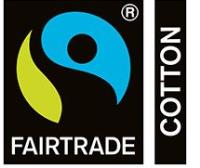 Add My Company
Add My Company
Sign In

At Brand Identity we’ve received many emails asking about the difference between organic, Fairtrade, and sustainable certification and standards for apparel.
So with this blog post I hope to make the difference clear.
Organic
Organic standards are focused at the environmental level. And most organic standards evaluate the level of human intervention in agriculture. And It looks to limit and restrict the amount of pesticide used in the agricultural process.
Brands which are organic will use fabrics produced using purely natural methods. Non-organic methods use pesticides, to stop insects damaging crops, and can cause great harm and have a great social and environmental impact. pesticides can absorb into the soil affecting natural water supplies, and their toxicity can do damage to the farmers who are regularly in contact with it. The risk is far worse when you consider the working conditions of the many farmers in third-world countries where produce is grown, and where safety wear and PPE are in short supply. The toxic fabrics themselves which often contain pesticides that can even harm end consumers (Greenpeace).
Organic certification to look out for include the OEKO-TEX standard. It is already a compulsory standard in many European countries. It looks at how companies use and handle chemicals, how they use and dispose of water, levels of noise pollution , levels of dust, work conditions, and tests that fabrics are free from over 100 harmful chemicals. And the holder of this certification must have an environmental management system in place to help assure they meet standards.
Fairtrade
When garments are labelled as Fairtrade, the standard is less concerned with environmental issues and more with economic ones. With a Fairtrade label you can be confident that workers have been paid a living wage and employed under good working conditions. Fairtrade believes the best way to eliminate poverty is to pay farmers a fair price for their produce.
Fairtrade marked goods provide a much needed safety net for farmers and their workers by making sure prices cover the cost of producing their crop. It gives them access to credit in advance of harvest time. It ensures working conditions are decent, and ensures products are not produced under conditions of discrimination, forced labour, or child labour.
Fairtrade is also the only sustainability standard managed by producers. And they promote and require businesses to adopt collective organising – organising cooperatives and workers organisations with a transparent democratic structure so they have greater power over their business.
Sustainable
Sustainability encompasses both Fairtrade and organic standards, as both pursue an end goal of a more sustainable working environment.
Fairtrade and Organic standards will promote each other. Organic standards encourage businesses to adhere to sound economic practices. and Fairtrade certification emphasizes good ecological and agricultural practices.
Fairtrade while not requiring organic certification, does promote organic production like responsible water and waste management, preserving biodiversity, soil fertility, and minimal use of pesticides and agrochemicals. Fairtrade also prohibits the use of numerous potentially harmful genetically modified organisms. And reward farmers with higher Fairtrade Minimum Prices for the organically grown products.
For more information on Difference Between Fairtrade , Organic, And Sustainable Standards talk to Brand Identity
Enquire Now
List your company on FindTheNeedle.
